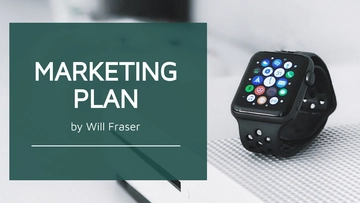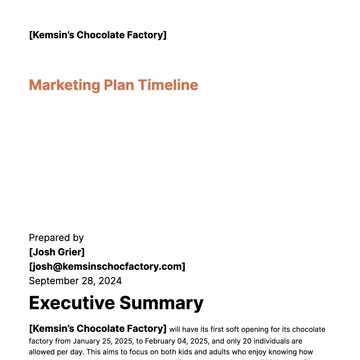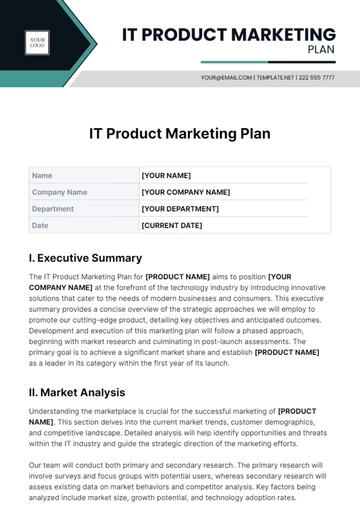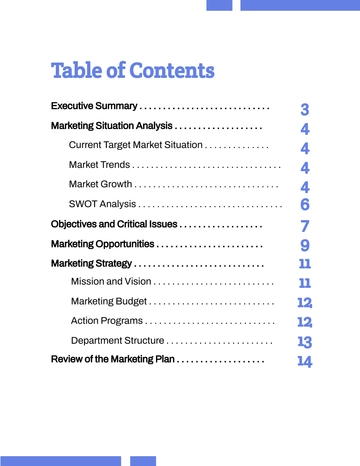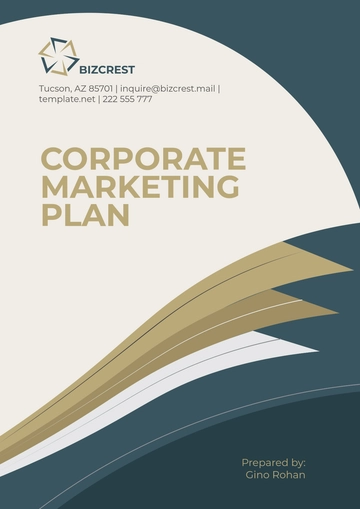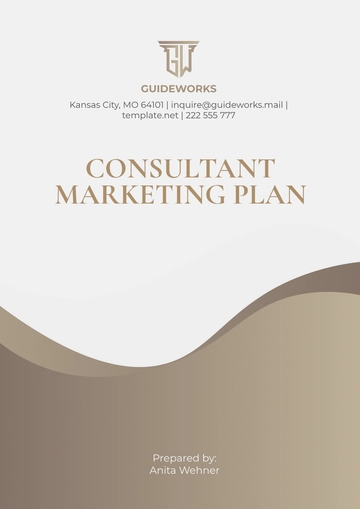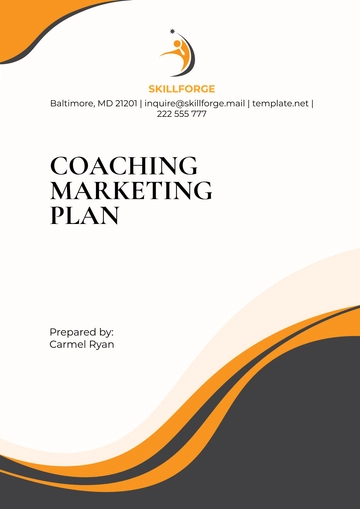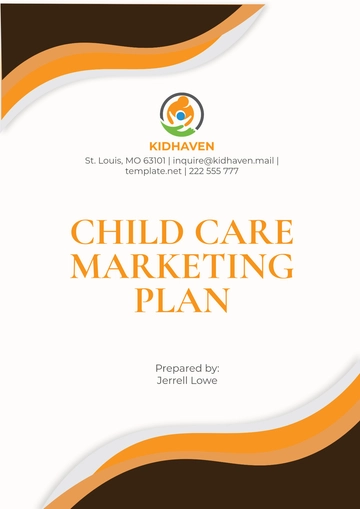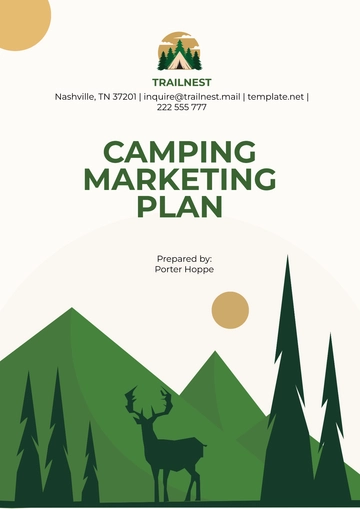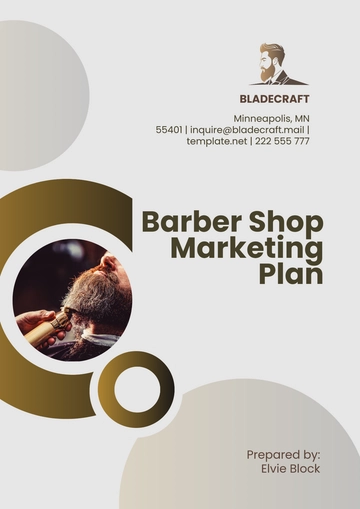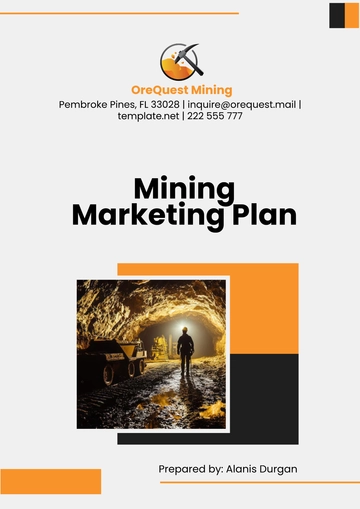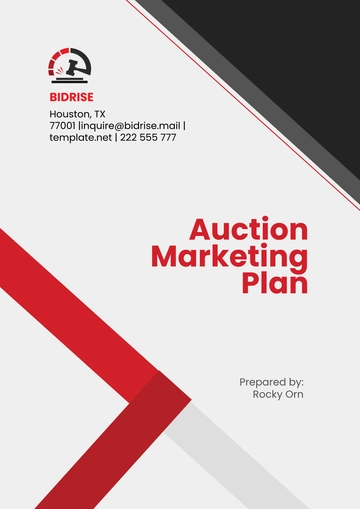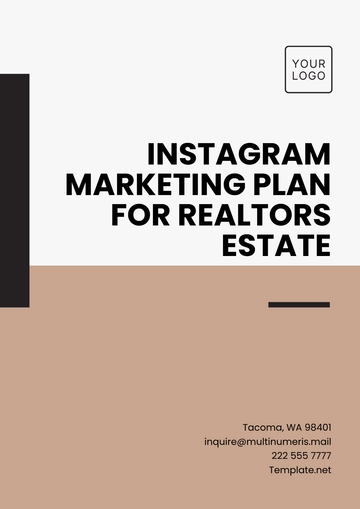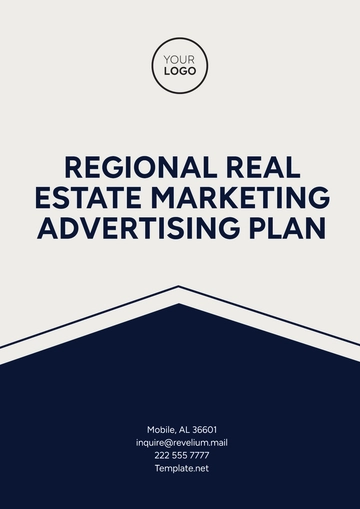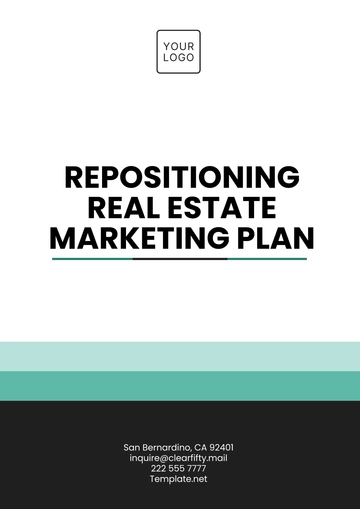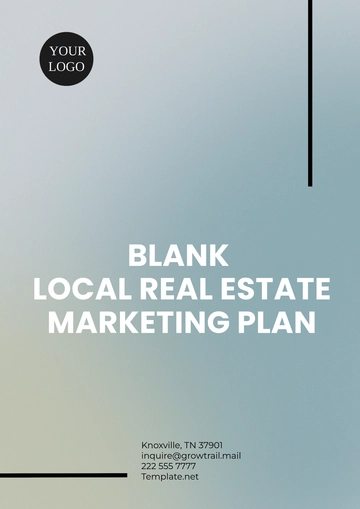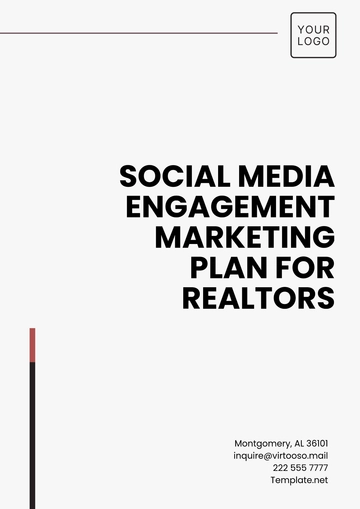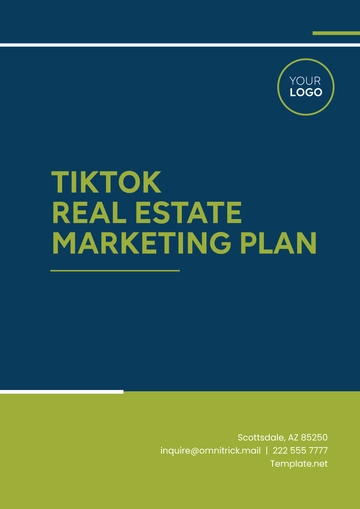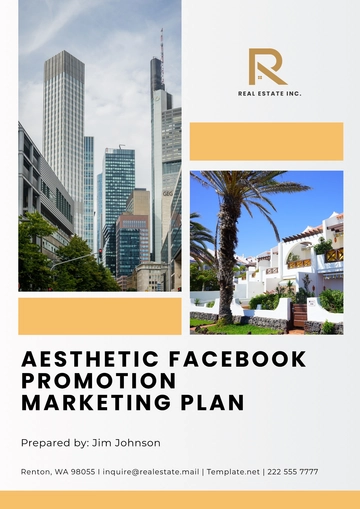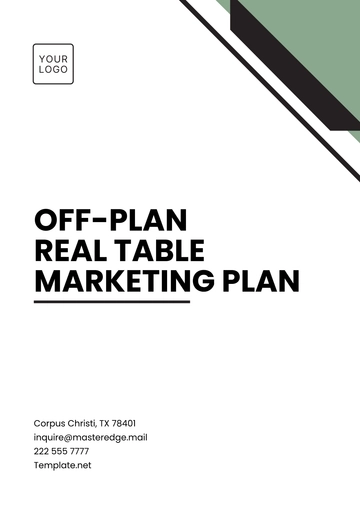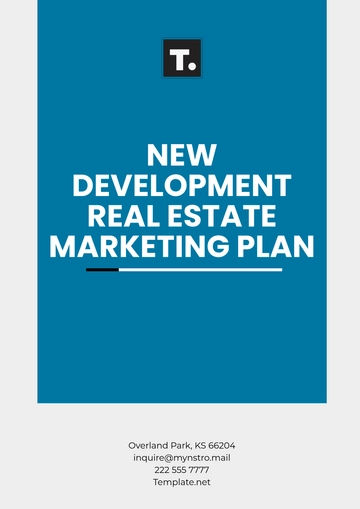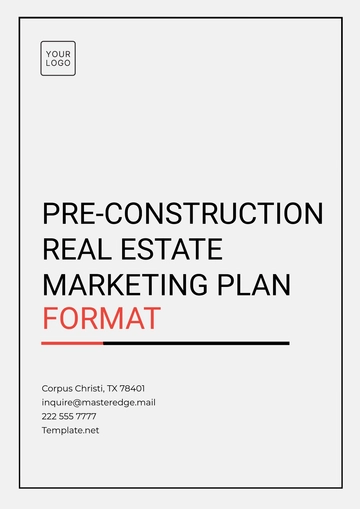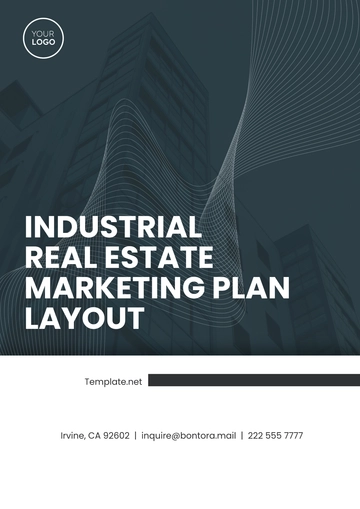Free Restaurant Banquet Hall Marketing Plan
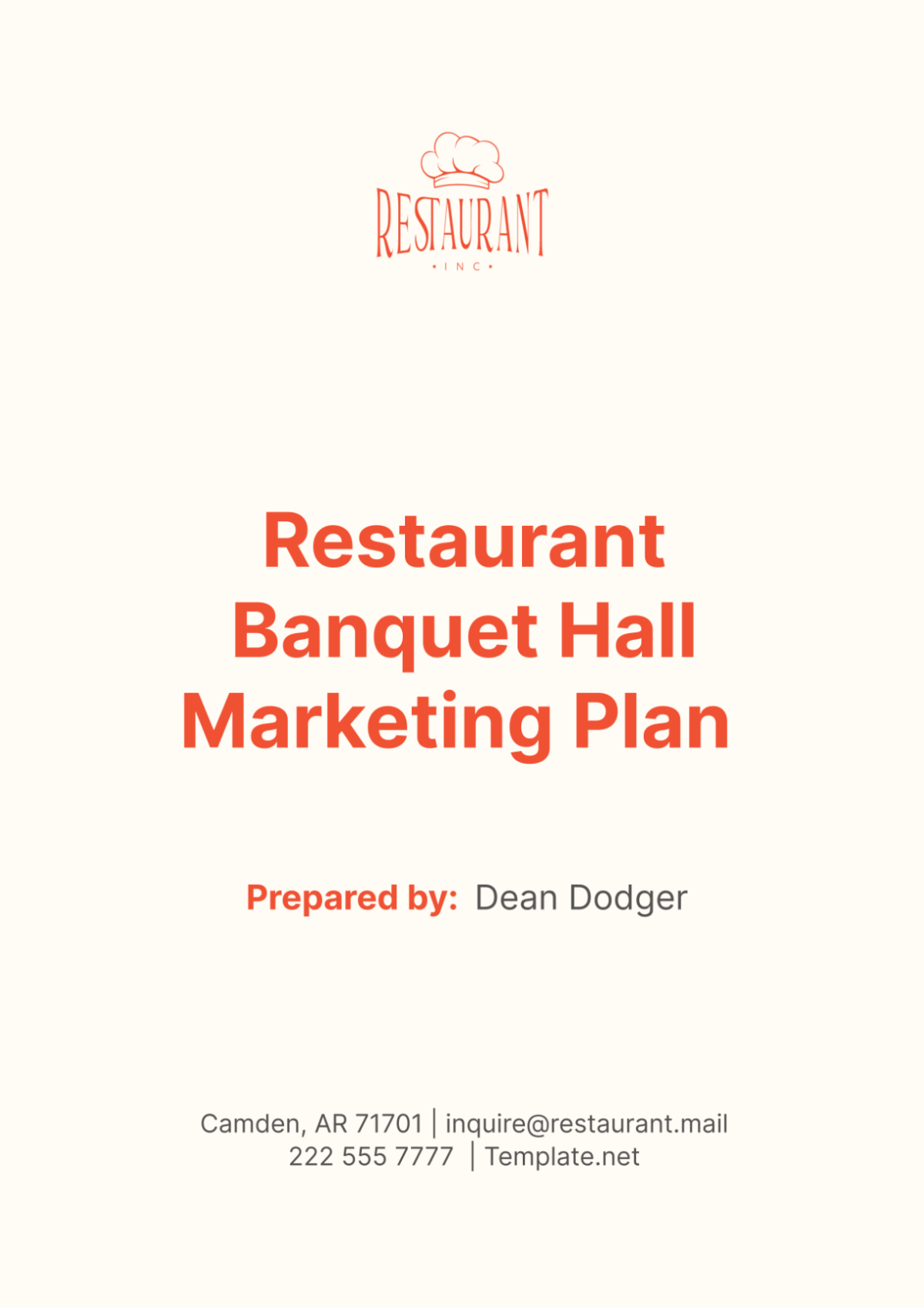
I. Executive Summary
A. Overview of the Banquet Hall
[Your Company Name] is a premier restaurant with a state-of-the-art banquet hall, offering an elegant venue for weddings, corporate events, and social gatherings. Located in the heart of [City], our banquet hall combines exquisite dining with exceptional service, making it the ideal choice for any special occasion.
B. Purpose of the Marketing Plan
This marketing plan aims to outline comprehensive strategies to promote [Your Company Name]'s banquet hall, increase bookings, and establish our venue as the top choice for events in the area. By leveraging a mix of digital and traditional marketing techniques, we will enhance brand awareness and attract a diverse clientele.
C. Key Objectives and Goals
Increase banquet hall bookings by 25% within the first year
Establish a strong online presence with a 20% increase in website traffic
Enhance brand recognition through strategic partnerships and community engagement
Achieve a 15% growth in revenue from banquet hall events
II. Market Analysis
A. Industry Overview
The banquet hall and events industry has shown resilience and growth, driven by the increasing demand for social and corporate events. Post-pandemic, there's a surge in event bookings as people seek to reconnect and celebrate milestones. The industry's growth is further fueled by trends such as personalized event experiences and the integration of technology in event planning and execution.
Target Market Identification:
Demographic Profile | Details |
|---|---|
Age | 25-60 years |
Gender | Male and Female |
Income Level | Middle to High-income households |
Occupation | Professionals, Entrepreneurs, Event Planners |
Marital Status | Single, Engaged, Married |
Family Status | Families, Couples |
Psychographic Profile | Details |
|---|---|
Lifestyle | Social, Active, High-Involvement in Community Activities |
Values | Quality, Prestige, Convenience |
Interests | Event Planning, Fine Dining, Social Gatherings |
Attitudes | Brand Conscious, Preference for Personalized Experiences |
Geographic Considerations | Details |
|---|---|
Location | Residents of [City] and surrounding areas |
Accessibility | Easy access to main roads and highways, ample parking facilities |
Proximity to Attractions | Close to popular city attractions and hotels |
B. Competitive Analysis
Key Competitors:
Competitor | Strengths | Weaknesses |
|---|---|---|
Banquet Hall A | Modern facilities, strong online presence | Higher pricing, limited parking space |
Banquet Hall B | Experienced staff, established reputation | Outdated décor, limited customization options |
Banquet Hall C | Affordable pricing, central location | Smaller venue size, fewer amenities |
SWOT Analysis:
Strengths | Weaknesses |
|---|---|
High-quality facilities and décor | Limited brand recognition |
Exceptional culinary offerings | Smaller marketing budget compared to major competitors |
Prime location in the heart of the city | A limited number of in-house event planners |
Opportunities | Threats |
|---|---|
Growing demand for event venues post-pandemic | Intense competition from well-established venues |
Ability to offer personalized and themed events | Economic downturn affecting discretionary spending |
Potential partnerships with local businesses | Seasonal fluctuations in event bookings |
C. Market Needs and Preferences
Customers seeking banquet hall services prioritize the following:
Venue Aesthetics: Elegant and customizable décor options
Culinary Excellence: High-quality, customizable menus
Convenience: Easy booking process, ample parking, accessibility
Service Quality: Professional, attentive, and experienced staff
Technology Integration: Modern AV equipment, Wi-Fi availability
III. Marketing Goals and Objectives
A. Short-term Goals
Achieve a 10% increase in bookings within the first six months
Boost engagement on social media platforms by 30% in three months
Launch and optimize a new SEO-friendly website within the first quarter
B. Long-term Goals
Double the number of bookings within two years
Establish [Your Company Name] as a top-tier banquet hall in the region
Develop long-term partnerships with at least five event-planning companies
C. SMART Objectives
Objective | Specific | Measurable | Achievable | Relevant | Time-bound |
|---|---|---|---|---|---|
Increase bookings by 25% within the first year | Target specific market segments | Track the number of bookings monthly | Yes, with effective marketing | Directly tied to revenue growth | Achieve within 12 months |
Enhance website traffic by 20% | Implement SEO and content strategies | Monitor website analytics | Yes, with consistent effort | Essential for online presence | Achieve within 6 months |
Establish 5 strategic partnerships within a year | Identify and approach key partners | Count of signed partnership agreements | Yes, with proactive outreach | Supports long-term growth | Achieve within 12 months |
IV. Marketing Strategies
A. Brand Positioning
Unique Selling Proposition (USP): [Your Company Name]'s banquet hall offers a blend of luxurious ambiance, culinary excellence, and unparalleled service, ensuring that every event is a memorable and unique experience.
Brand Messaging and Tone:
Voice: Professional, warm, and inviting
Tagline: "Where Every Event Becomes an Extraordinary Experience"
Core Message: At [Your Company Name], we transform your special moments into unforgettable celebrations with our elegant banquet hall, exceptional dining, and dedicated service.
B. Digital Marketing
Website Optimization:
SEO: Implement on-page and off-page SEO strategies to improve search engine rankings
Content: Regularly update the blog with articles on event planning, recipes, and customer testimonials
UX/UI Design: Ensure the website is user-friendly, with easy navigation and mobile responsiveness
Social Media Marketing:
Platform | Content Strategies | Posting Schedule |
|---|---|---|
Event highlights, customer reviews, promotions | 3-4 times per week | |
High-quality photos, behind-the-scenes stories | Daily | |
Professional event showcases, industry news | 2-3 times per week | |
Event inspiration boards, décor ideas | Weekly |
Email Marketing Campaigns:
Newsletter: Monthly updates featuring upcoming events, promotions, and tips
Personalized Emails: Targeted campaigns for different customer segments (e.g., brides-to-be, corporate clients)
C. Traditional Marketing
Print Advertising:
Magazines: Advertisements in local and regional wedding and event magazines
Newspapers: Regular ads in the lifestyle and event sections of local newspapers
Direct Mail Campaigns:
Brochures and Flyers: Distribution to local businesses, wedding planners, and event organizers
Partnerships with Local Businesses:
Collaborate with florists, photographers, and entertainment providers for cross-promotional opportunities
Offer exclusive discounts and packages through partner businesses
D. Event Marketing
Hosting Open Houses and Tours:
Monthly open houses showcasing the banquet hall and amenities
Guided tours with event planners to highlight customization options
Participation in Wedding and Event Expos:
Booths at major local and regional expos
Offering promotional packages and on-the-spot bookings
Collaborations with Event Planners and Vendors:
Establish partnerships with reputable event planners
Create exclusive packages that include services from partnered vendors
E. Public Relations
Press Releases:
Announce major events, new services, and special promotions
Highlighting community involvement and charity events hosted at the banquet hall
Community Engagement and Sponsorships:
Sponsor local events and festivals
Host charity events and fundraisers to enhance community presence
Influencer and Blogger Partnerships:
Collaborate with local influencers and bloggers to promote the banquet hall
Host influencer events to generate buzz and social media content
V. Marketing Budget
A. Budget Allocation
Marketing Channel | Allocation ($) | Percentage (%) |
|---|---|---|
Digital Marketing | 30,000 | 40 |
Traditional Marketing | 15,000 | 20 |
Event Marketing | 10,000 | 15 |
Public Relations | 7,500 | 10 |
Partnerships and Sponsorships | 5,000 | 7 |
Miscellaneous | 2,500 | 3 |
Total | 75,000 | 100 |
B. Expected ROI
Marketing Channel | Expected ROI ($) |
|---|---|
Digital Marketing | 90,000 |
Traditional Marketing | 45,000 |
Event Marketing | 30,000 |
Public Relations | 22,500 |
Partnerships and Sponsorships | 15,000 |
Total | 202,500 |
C. Cost Management
To ensure efficient use of the marketing budget, we will:
Regularly review spending and adjust allocations based on performance
Leverage cost-effective digital marketing strategies
Negotiate favorable rates with vendors and partners
Monitor ROI closely and reallocate funds to high-performing channels
VI. Implementation Plan
A. Timeline
Milestone | Deadline |
|---|---|
Launch new SEO-friendly website | Month 1 |
Start social media marketing campaigns | Month 1 |
Begin email marketing campaigns | Month 2 |
Host first open house event | Month 2 |
Participate in first event expo | Month 3 |
Establish first strategic partnership | Month 4 |
Evaluate initial performance | Month 6 |
Adjust marketing strategies as needed | Ongoing |
B. Action Plan
Task | Responsible Party | Deadline |
|---|---|---|
Website redesign and SEO implementation | Marketing Team, Web Developer | Month 1 |
Social media content creation | Social Media Manager | Ongoing |
Email campaign setup | Email Marketing Specialist | Month 2 |
Plan and execute open house events | Event Coordinator | Monthly |
Coordinate participation in expos | Marketing Manager | Month 3 |
Identify and approach potential partners | Business Development Manager | Month 4 |
C. Resource Allocation
Resource | Allocation Details |
|---|---|
Staff | Marketing Team, Event Planners |
Materials | Promotional materials, décor |
Technology | Website hosting, marketing software |
Budget | Allocated as per the marketing budget |
D. Monitoring and Evaluation
Performance Metrics and KPIs:
Metric | KPI Target |
|---|---|
Website traffic | Increase by 20% in 6 months |
Social media engagement | Increase by 30% in 3 months |
Number of bookings | Increase by 10% in 6 months |
Customer satisfaction | Maintain a rating of 4.5/5 or higher |
Regular Review Meetings and Adjustments:
Monthly performance review meetings
Quarterly strategy adjustment sessions based on data analysis
Continuous feedback loop for ongoing improvements
VII. Evaluation and Control
A. Performance Metrics
To ensure the marketing strategies are effective and align with our objectives, we will monitor the following performance metrics:
Metric | KPI Target |
|---|---|
Website Traffic | Increase by 20% in 6 months |
Social Media Engagement | Increase by 30% in 3 months |
Number of Bookings | Increase by 10% in 6 months |
Customer Satisfaction | Maintain a rating of 4.5/5 or higher |
Email Open Rates | Achieve an open rate of 25% |
Conversion Rate | Achieve a booking conversion rate of 5% |
Event Attendance | Increase attendance by 15% per event |
Partnership Agreements | Establish 5 new partnerships in a year |
B. Feedback Mechanisms
To gather valuable insights and ensure continuous improvement, we will implement various feedback mechanisms:
Customer Surveys: After each event, send out surveys to gather feedback on their experience, including venue satisfaction, service quality, and overall impressions.
Online Reviews: Monitor and respond to reviews on platforms like Google, Yelp, and social media. Encourage satisfied customers to leave positive reviews.
Social Media Polls: Use social media polls to engage with followers and gather their opinions on potential new services or improvements.
Event Debriefs: Conduct debriefs meetings with clients post-event to understand their experiences and gather constructive feedback for future improvements.
C. Continuous Improvement
Based on the feedback collected and performance metrics, we will:
Analyze Data: Regularly review collected data to identify trends and areas for improvement.
Adjust Strategies: Make necessary adjustments to marketing strategies, focusing on high-performing areas and addressing any weaknesses.
Innovate: Stay updated with industry trends and continuously explore innovative marketing tactics to stay ahead of competitors.
Train Staff: Provide ongoing training to staff to ensure they are equipped with the latest knowledge and skills to deliver exceptional service.
By implementing a thorough evaluation and control process, we will ensure that [Your Company Name] remains a leading choice for event hosts, delivering exceptional experiences and achieving our marketing goals.
VIII. Conclusion
With this comprehensive marketing plan, [Your Company Name] will effectively promote its banquet hall, attract more bookings, and enhance its reputation as a premier event venue. Through a combination of digital and traditional marketing strategies, targeted objectives, and continuous evaluation, we aim to achieve significant growth and success in the competitive events industry.
- 100% Customizable, free editor
- Access 1 Million+ Templates, photo’s & graphics
- Download or share as a template
- Click and replace photos, graphics, text, backgrounds
- Resize, crop, AI write & more
- Access advanced editor
Maximize your banquet hall bookings with Template.net's Restaurant Banquet Hall Marketing Plan Template. This customizable and editable template, accessible through the Ai Editor Tool, helps you develop a targeted marketing strategy. Personalize it to highlight your venue’s unique features and attract clients. Create a comprehensive plan to boost your marketing efforts and increase your banquet hall’s visibility and bookings.
